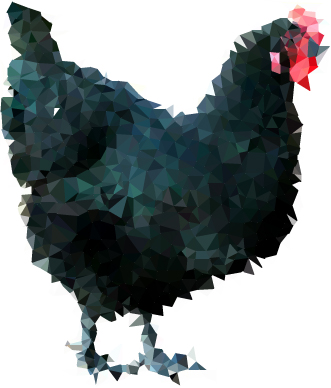for English scroll down
Среди всех чудес, которыми нас одарила американская пищевая промышленность, жвачка до сих пор остается самым противоречивым. Всем понятно, что чипсы, кока-кола и чизбургеры – это плохо. А что же жвачка?
Начнем, пожалуй, с состава. В стандартный мятный Орбит включены, кажется, все доступные человечеству подсластители и регуляторы кислотности – в итоге получается более 10 (!) ингредиентов. Ситуация любопытная: картошка фри, например, содержит в себе всего три (!). Более того, в 100 г картошки фри содержится 54 г углеводов, в мятной жвачке же – 62,6 г. На всякий случай, однако, подчеркну: это не значит, что картошка фри от этого перестала быть жирной бомбой для организма.
Все вышеперечисленное, кажется, говорит отнюдь не в пользу жвачки. Но давайте договоримся, что единственное, чему мы будем доверять – это наука и исследования профессионалов.

Итак, Ричард Мэйттс (Университет Пердью, США) и Роберт Консидин (Медицинский колледж в Индианаполисе, США) провели эксперимент, в котором приняли участие 60 мужчин и женщин с нормальным и 60 с избыточным весом, чтобы посмотреть, повлияет ли жвачка на их аппетит. Ученые выяснили: такого воздействия она не имеет, однако полные участники почувствовали прилив энергии, а вот худые – с точностью до наоборот.
Свое собственное исследование заказала в Род-Айлендском университете (США) и компания Wrigley, которая производит Орбит. В ходе эксперимента выяснилось, что те участники, кто жевал жвачку в течение часа каждые 20 минут, за обедом потреблял в среднем на 67 калорий меньше, чем те, кто обходился без нее. Видимо, жвачка посылает сигналы мозгу, которые контролируют аппетит и вызывает чувство сытости. Доверять или не доверять результатам явно проспонсированного исследования – решать вам. Однако ученые и до этого приходили к выводу, что жвачка стимулирует активность отделов головного мозга, отвечающих за память (кстати, выяснилось, что такое воздействие оказывается весьма полезным для долгосрочной и пагубной – для кратковременной памяти), увеличивает частоту сокращения сердца и за счет содержащегося сахара или сахарозаменителей провоцирует выброс инсулина в кровь. Все это вкупе помогает человеку лучше соображать. Короче говоря, судя по всему, жвачка не помешает вам ни худеть, ни поддерживать здоровый уровень вес, потому что воздействие ее на организм все же весьма незначительное.
Так, жевать или не жевать? Жевать: умеренно, не натощак и не очень долго.

//
Among all of the wonders, those were gifted to us by the American food industry, chewing gum still happens to be the most controversial one. Everyone understands that Coca-Cola, crisps and cheeseburgers are bad. But what about the gum?
Let’s begin maybe with the product contents. It seems like all of the sweeteners and acidity regulators available to the humankind were included in it. So as the result there are over than 10 (!) ingridients. The situation is quite interesting, as french fries e.g. consist only of three (!) ingridients. Moreover, there are 54 g of carbs in 100 g of french fries, while the 100 g of mint chewing gum has 62,6 g. For what it’s worth, however, I need to clarify: that doesn’t mean that french fries aren’t the fatty bomb for your body.
Everything listed above says by no means in favor of gum. But let’s make a deal: we will only trust science and professionals’ researches.

So, Richard Mattes (Purdue University, USA) and Robert Konsidine (Indiana School of Medicine, USA) conducted an experiment with 60 men and women with normal weight and 60 men and women who were overweight. The aim of the reserch was to understand, whether chewing gum can affect their appetite. The scientists came to a conclusion that it has no such an effect, although the chubbier participants felt the burst of energy and the thinner participants felt completely the other way around.
The Wrigley Company that actually manufactures Orbit asked the University of Rhode Island (USA) to make its very own research. In the course of the experiment it became quite clear that those participants, who kept on chewing gum every 20 minutes for an hour, had in fact on the average less calories at lunch (for about 67 kcal) that those who dispensed with gum. It seems like, chewing gum sends the signals to the brain that control the appetite and create a feeling of bellyful. It depends on you, whether to believe or not those results of the clearly sponsored research. However, the scientists had come even before to the conclusion that chewing gum does suscitate those brain regions responsible for the memory (by the way, just to clear up, such an impact is quite good for the long-term memory and on the other hand – quite destructive for the short-term one). The gum can also increase the heart rate and provokes the release of insulin to the blood thanks to sugar and sweetners that are contained in it. All of these things help to be quicker on the uptake. Anyways from all appearances chewing gum will not mess with your weight-loss process, neither it will help you to keep a steady level of weight as its influence on your body is quite small.
In conclusion, to chew or not to chew? To chew: in moderation, not an on an empty stomach and not for a long time.
P.Credits: theyallhateus, charlesfrith.blogspot.ru, blackrainbowss.tumblr.com

